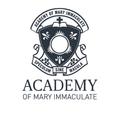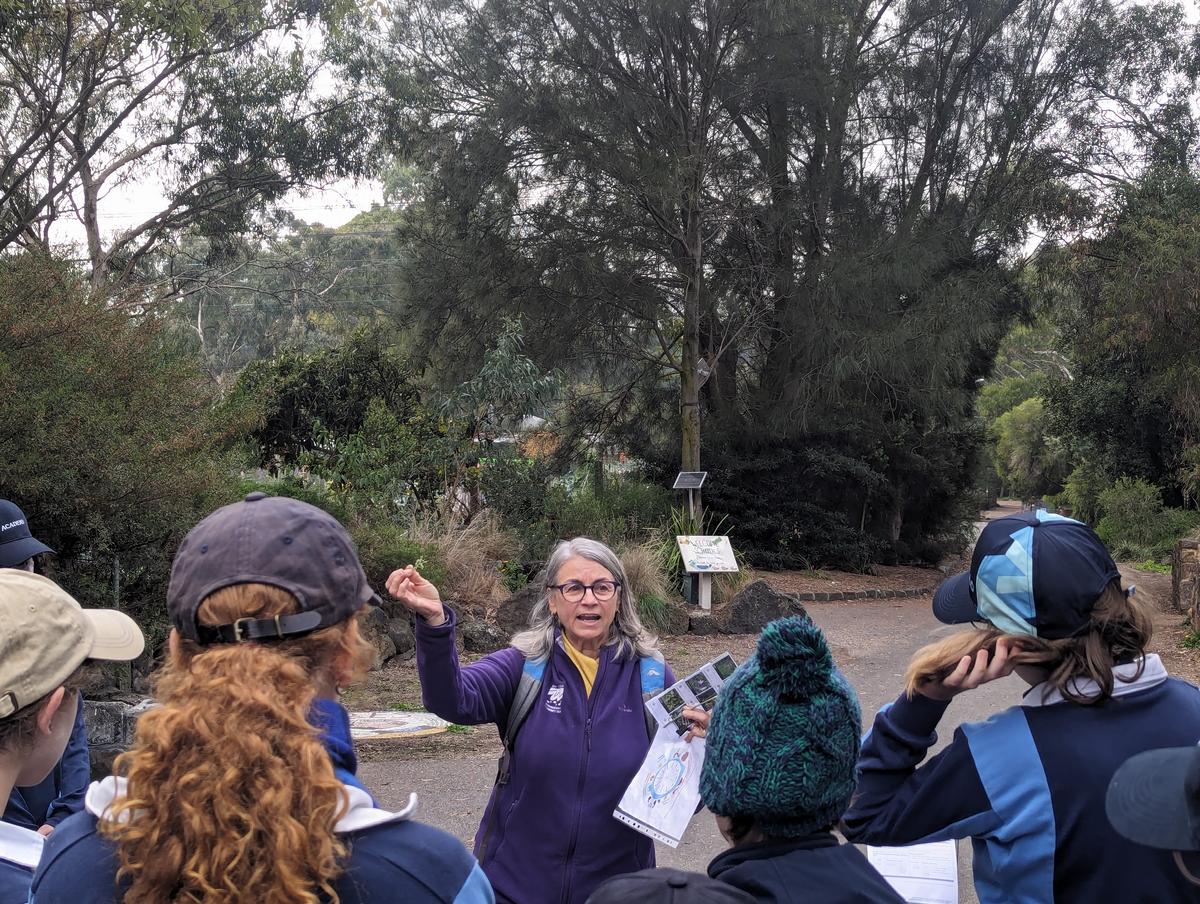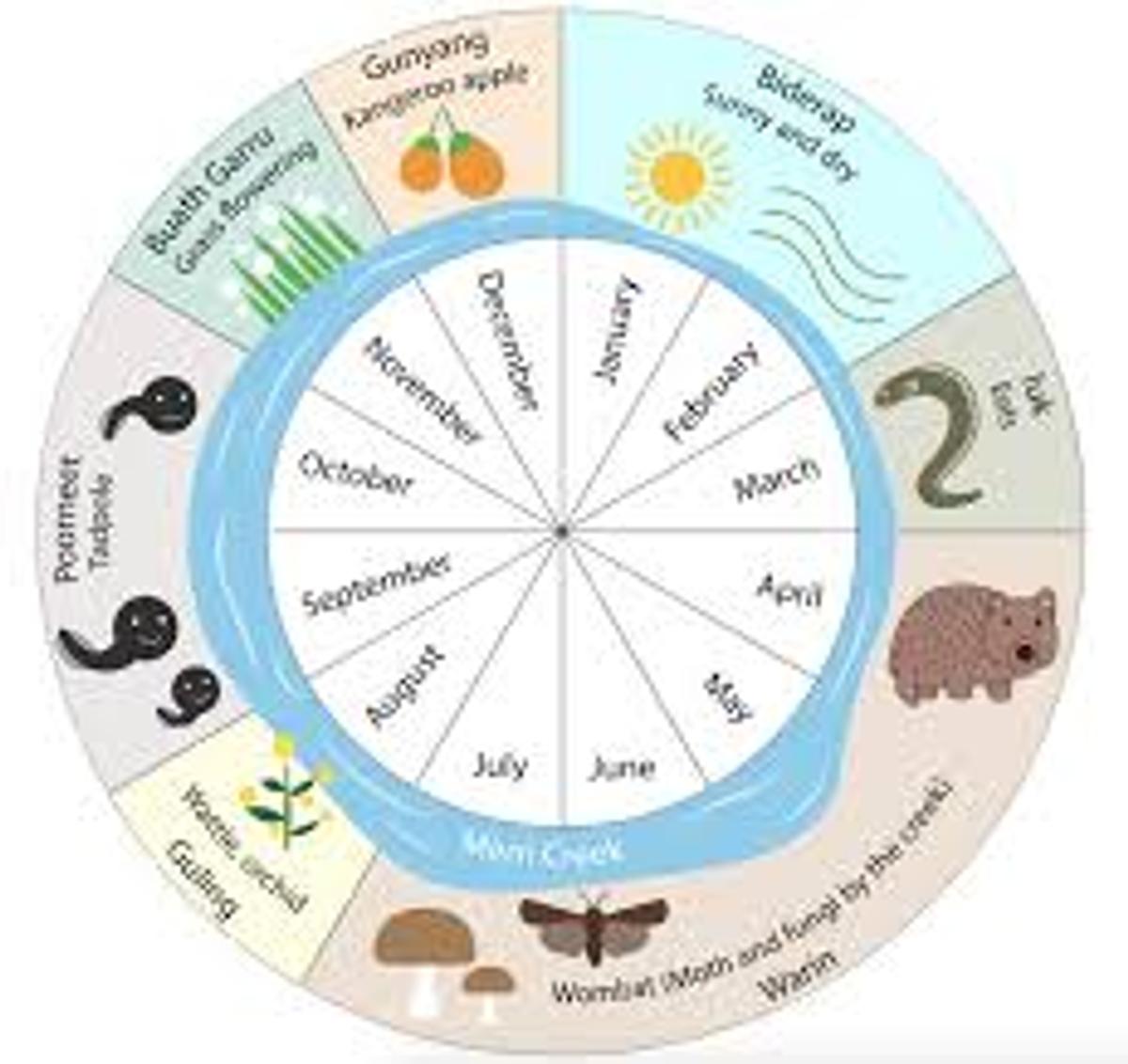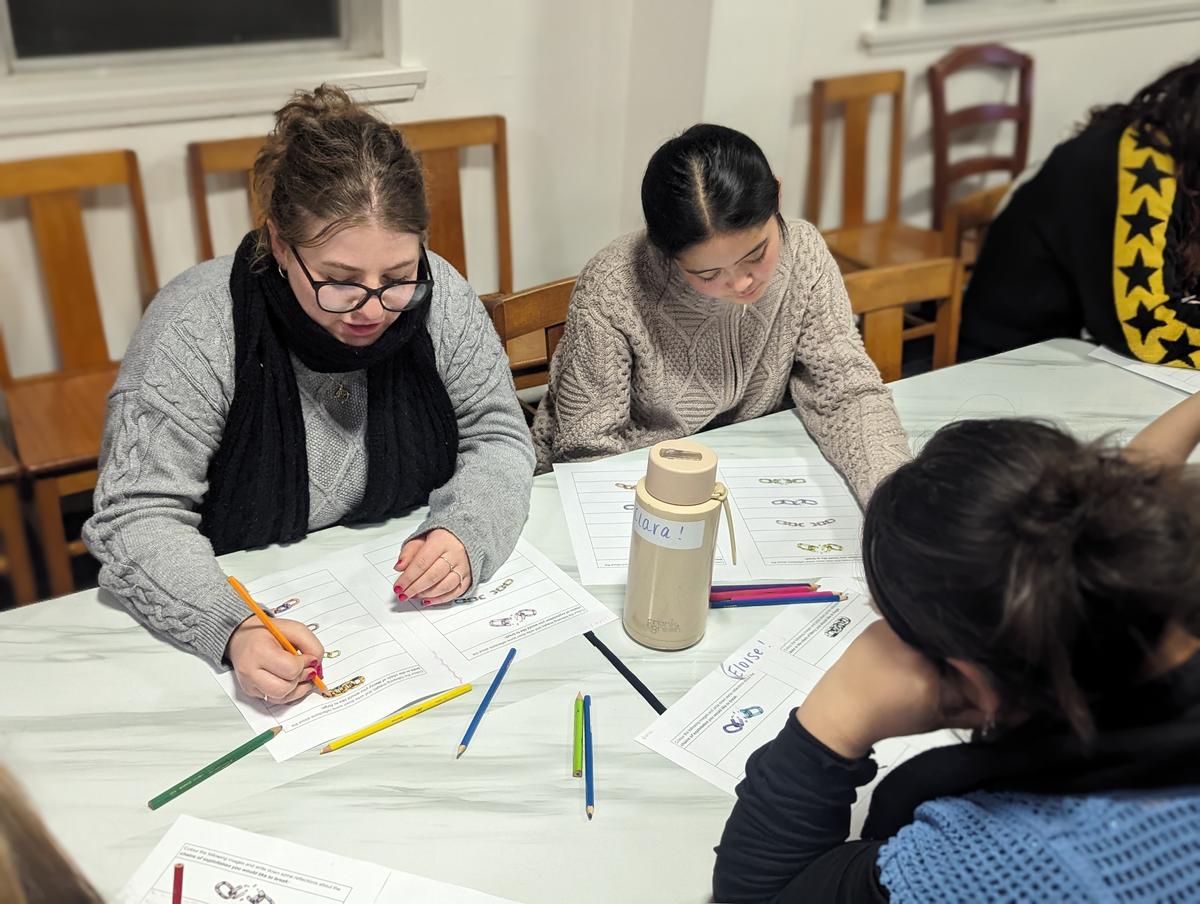Justice
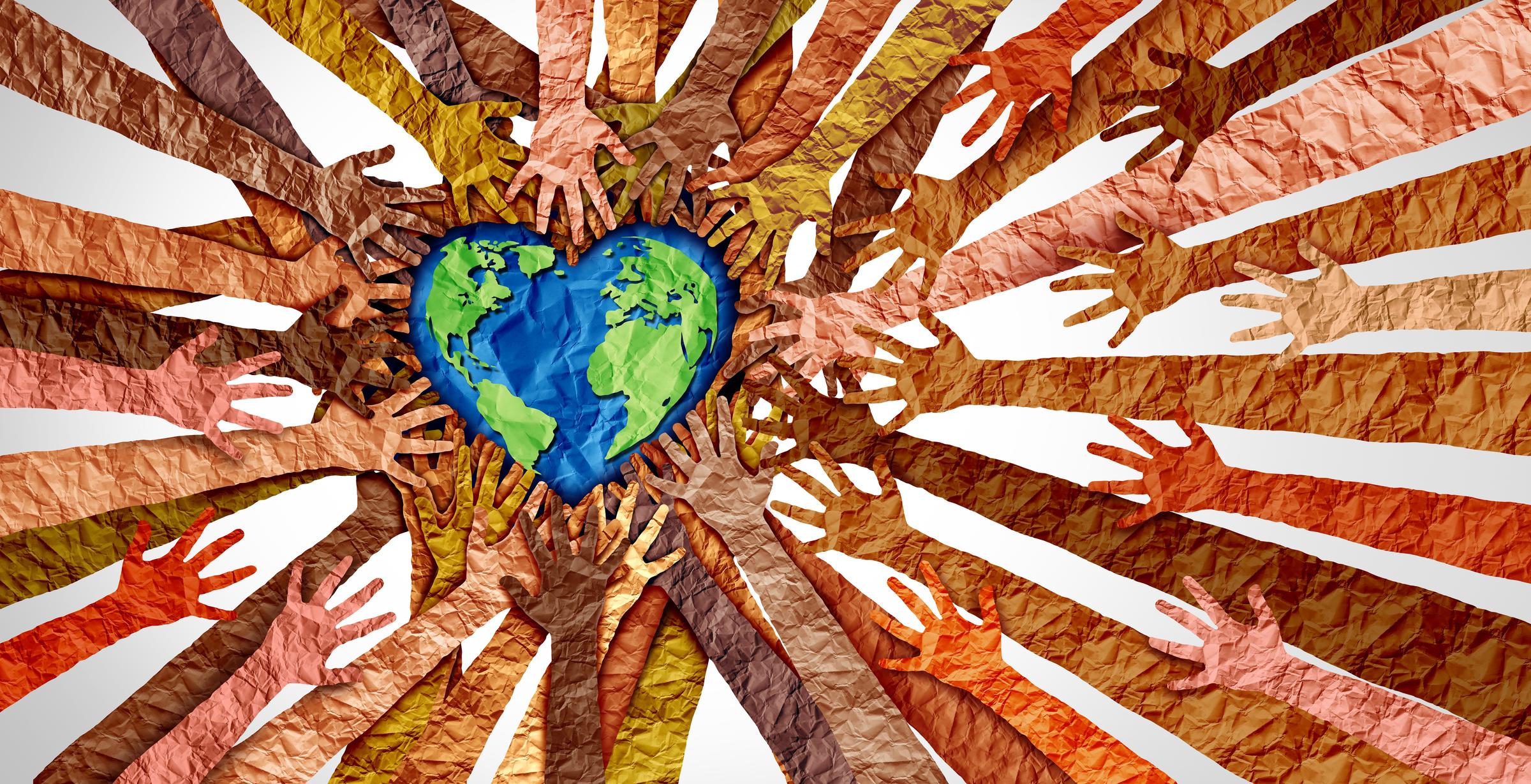
FIRE Carrier Term 2
As we draw closer to reconciliation week the FIRE Carriers have been promoting enculturation and reconciliation through a range of initiatives.
- Learning more about the Indigenous significance of the Merri Creek through excursion.
- Working on the Academy’s Reconciliation Action Plan.
- Planning events and preparing for reconciliation week.
Merri Creek excursion - student reflection.
On Friday the 3rd of May, a group of enthusiastic Justice students went on an excursion to Merri Creek to learn about caring for Wurundjeri Woi-wurrung Country (protecting Indigenous biodiversity), the 6 layers of Country, dispossession of first nations people, Indigenous language and Wurundjeri seasons. We toured around Merri Creek and were introduced to many Indigenous plant species by Angela Foley PhD (Ed), BA (Hons Geog) who is the Special Engagement Programs Coordinator of Merri Creek Management Committee.
Angela took us through the difference between native and indigenous species, showing us examples of some that were growing around the park telling us what their Wurundjeri names and what the plants were used for. She taught us how First Nations people can tell the seasons by looking at the plants, this is a way of tracking months before seasons were introduced. These include Biderap, the dry season, Iuk, eel season and Waring, wombat season to name a few.
An idea proposed following our excursion was that we learn more about this way of telling time, as the seasons in Melbourne rarely follow the stereotypical weather. Angela also showed us how traditional baskets and eel nets were woven, using the blades of a Karawan (Lomandra Longfiolia).
We all felt very engaged in this experience and learnt a lot! We would love to return to wander amongst the Indigenous plants again!
Sophie & Melaleuca of Year 9
To learn more about the wonderful work of the Merri Creek Management Committee, please visit their website.
The Academy of Mary Immaculate’s Reconciliation Action Plan
Every two years as a FIRE Carrier school we are required to reflect on our actions and commitment to reconciliation. Part of this process included developing a new Reconciliation Action Plan. During one of recent Justice meetings the students were asked to reflect on what they want to learn more about regarding reconciliation and how we can promote reconciliation within our community. Some of the things they suggested are listed below.
- Things we want to know about reconciliation What do other Mercy schools do to promote reconciliation?
- What behaviors or actions are considered disrespectful or taboo to First Nations people & Culture e.g shouldn't take photos of significant sites without permission or show images or day the name of deceased First Nations person.
- How does reconciliation overlap with daily lives of First Nations people?
- And what does reconciliation mean to First Nations People?
- We would like to gain an understanding of modern problems First Nations people face e.g stereotypes and how we can break these stereotypes down.
Ways we can promote reconciliation at Academy
- Research actions and language that helps and harms our path to reconciliation.
- Have open discussion with First Nations students across the state to help our students understand the culture/lifestyle of First Nations people of similar age.
- Immersion - spend time with Indigenous people on their land.
These points and others will be used in the development of the schools new RAP along with input from Academy staff.
Reconciliation Week at the Academy - 27 - 31 May
FIRE Carriers and Justice group will be hosting a range of activities and resources with the students and staff to promote reconciliation.
Resources like this video that explains the significance of reconciliation week which begins this Sunday 26 May with National Sorry Day.
Tuesday 28 May - Native Seed Planting Stall and Market Stall selling Indigenous made and designed goods such as pens, mugs, bags, headbands and more. Funds from these stalls will go to the opening the doors foundation. www.openingthedoors.org.au
Thursday 30 May - Jewelry making in the undercroft. Students will be able to learn about the history and significance of the Aboriginal Flag and have the opportunity to paint earrings with the colours of the Flag.
Friday 31 May - Indigenous botanical drawing and talk hosted by Angela Foley PhD (Ed), BA (Hons Geog) of Merri Creek Management. Students will have the opportunity to learn about Caring for Wurundjeri Woi-wurrung Country. Explore the 6 layers of Country, dispossession, language & seasons whilst completing a botanical drawing of a native plant.
Seeds of Justice Conference - Breaking the Chains
On Thursday 16 & Friday 17 May, three of the year 11 Justice Students attended the Seeds of Justice Conference with students from nine other Mercy schools from across the state. The following is a report by the students about their experience.
Last week, the three of us (Emma, Clara & Eloise) from Year 11 had the incredible opportunity to attend an overnight conference at the Templestowe Holy Cross Centre. This event brought together students from nine other Mercy schools to delve deeply into the pressing issue of modern slavery and human trafficking under the theme "Breaking the Chains."
This conference was not only a platform for learning and awareness but also a space for us to collaborate and discuss actionable solutions to put into action at our school and day-to-day life to combat these global injustices. Through engaging workshops, thought-provoking discussions, and inspiring guest speakers such as Liz Payne, a passionate advocate in making sure victims become survivors and Bernard Dobson, a member of ACRATH (Australian Catholic Religious Against Trafficking In Humans).
We were empowered to bring back valuable insights and a renewed sense of purpose to implement what we have learnt and educate others in our school community. Though modern-day slavery and human trafficking may feel out of our reach, there are in fact several things we can do to help break the chains. One of the most important is ethical consumption. It is important to research where the products we purchase are sourced, and whether or not it is done ethically. There are a variety of platforms where this information can be found, including www.beslaveryfree.com and www.ethical.org.au/3.4.2/
When it comes to coffee and chocolate, ethically sourced products should be indicated by the Fair-Trade symbol, or the Rainforest Alliance symbol, represented by a little green frog. Not only can we as individuals purchase slavery-free products, but it is also crucial to spread knowledge.
Share your awareness with three other people and get them to do the same. Even though one person may not be able to change the world, every small action matters.
Emma & Eloise, Year 11
For more information on this topic, please go to:
Coming events
- FIRE Carriers & St Marks Primary knowledge sharing session.
- Refugee Week 17 - 21 June
- Cooking with AMSSA Conference - 24 - 27 June
